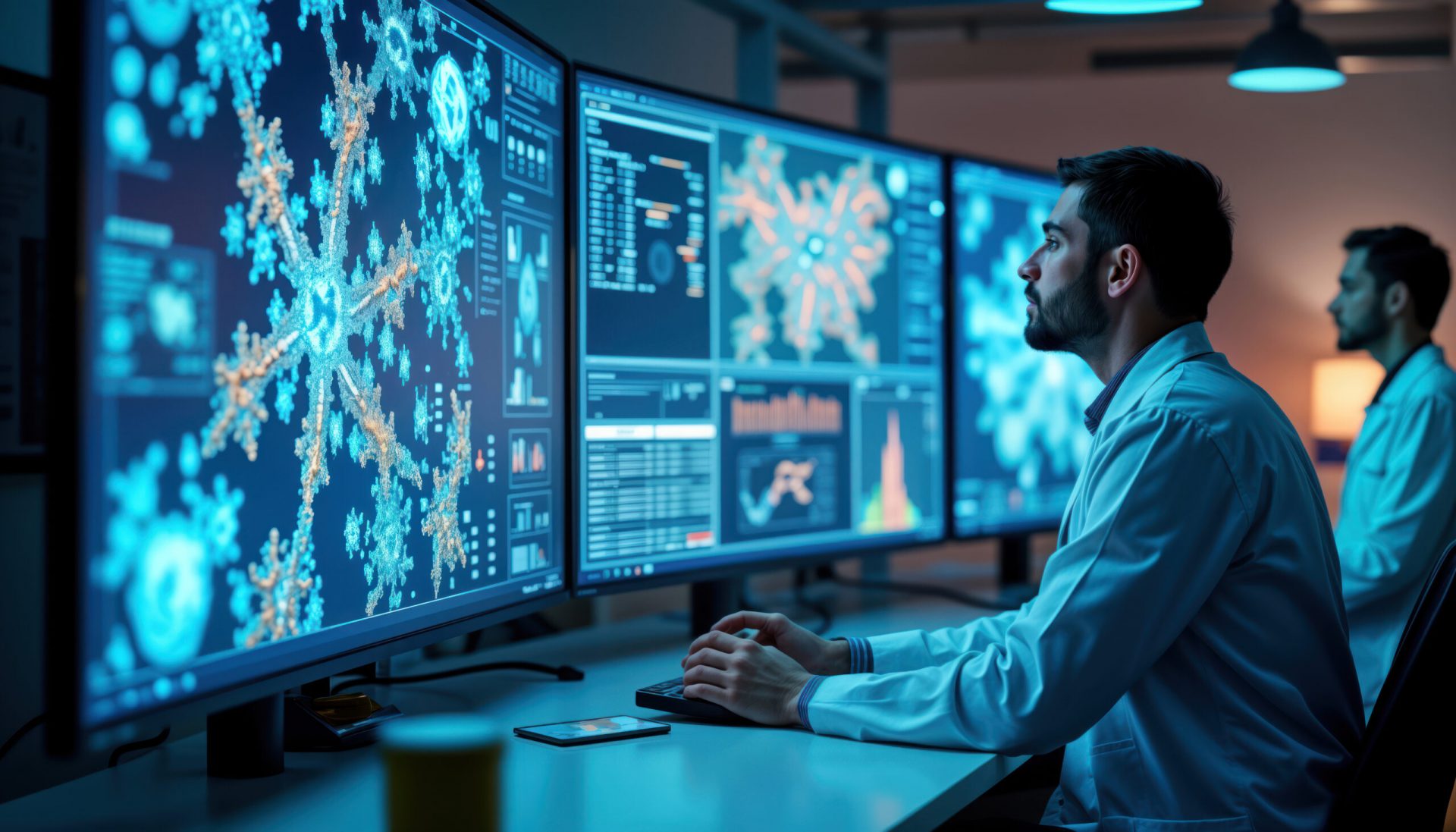How AI is Enabling New Research Paradigms and Accelerating Breakthroughs

- May 21, 2025
- 6 Min. Read
AI is not just accelerating research—it’s redefining it.
Artificial intelligence (AI) was initially investigated by health researchers for its potential to drive advances in the detection, diagnosis, and treatment of disease. The recent revolution of large-language models (LLMs) has caused many scientists to challenge long-held assumptions about how research should be conducted and explore new AI-enabled research processes. Today, researchers are employing LLMs and other AI advancements to create entirely new research paradigms, which will likely have broad and lasting implications for researchers and research participants. Although the future of AI-enabled research continues to evolve, one thing is clear – AI is expanding the art of the possible and accelerating breakthroughs needed to improve public health.
Once a Co-Scientist, Now a Scientist
Recent advances in multi-agentic AI have made it possible for machines to dramatically increase the pace of discovery by acting as co-scientists within the guardrails of human oversight. Google recently announced that DeepMind, its multi-agentic AI co-scientist, was able to generate the same hypotheses about the mechanisms of antimicrobial resistance as experts at Imperial College London using the same data. But what the co-scientist was able to do in two days took the research team a decade. It even went further by proposing a novel treatment for drug-resistant infections that is now undergoing testing.
Preliminary research conducted by Sakana AI, a Tokyo based company using evolutionary principles to design AI models, essentially using AI to train AI, suggests that a multi-agentic AI system has the potential to go even further and act as an autonomous scientist. In early demonstrations, Sakana’s “AI Scientist” was able to carry out the entire research process on its own and produce manuscripts that passed peer review. The question is no longer whether autonomous AI will be part of the future of health research and healthcare, but rather what guardrails are needed to ensure that it is safe, effective, and ethical?
The Evolving Research Ecosystem
As AI takes on more of the research process autonomously, the role of human researchers is shifting in both scope and responsibility. Scientists are increasingly acting as strategists and stewards who guide AI systems, validate outputs, and ensure ethical and contextual rigor. This transformation frees up time and energy for researchers to focus on processes where human judgment is indispensable, such as setting research priorities, interpreting findings within cultural and environmental contexts, and shaping policies that respond to real-world needs.
In this emerging ecosystem, AI functions not just as a tool, but as a collaborative agent capable of integrating massive datasets across disciplines. Imagine, for example, a public health team responding to a spike of pediatric asthma hospitalizations in a low-income urban area. Rather than starting from scratch, researchers could initiate a multi-agent AI system trained on decades of air quality data, measures of the social environment, housing data, and clinical outcomes. Within days, the system could surface overlooked correlations between environmental conditions and spike in asthma admissions and use the findings to propose a range of actionable mitigation strategies. Human researchers would then validate those insights, engage the community, and guide the translation of findings into policy or clinical guidance.
This seemingly futuristic vision of AI-enabled public health research is now within reach. As interdisciplinary teams become more common and as AI becomes more deeply integrated into the research process, the scientific ecosystem will undoubtably become more dynamic, responsive, and inclusive of the communities it aims to serve.
Research Participation Reimagined
AI and other advanced technology is reshaping what it means to be a research participant.
With mobile apps and wearable sensors, research participants now join and participate in studies from any location, eliminating burden associated with travel and navigation of research site complexities. Digital research platforms have also evolved beyond simple one-way data collection hubs to more interactive spaces where participants can view their own research data, compare their results to aggregate results for the research cohort, and even receive personalized feedback. AI has enabled these advances by automating data capture, quickly summarizing and displaying findings, and executing algorithms that provide tailored feedback. These shifts in the research process are beginning to overcome long-standing barriers to research participation and unlock new pathways to deliver more direct value to research participants.
Fostering Public Engagement and Open Science
AI is also helping to open science to broader audiences. New platforms with natural language query features are removing technical barriers to data exploration and enabling people without technical backgrounds to interrogate data and gain insights. Public health dashboards, interactive AI-driven summaries, and plain-language translations are just a few of the ways AI is improving accessibility to research data. At the same time, new open science platforms allow communities to gather data, ask meaningful questions, and take informed action on issues that matter to them. AI also holds promise for implementing new privacy-preserving research methods, such federated learning, that help build trust in how data is shared and used.
Looking Forward
AI has clearly emerged as a transformative force in health research, reshaping every stage of discovery. As we embrace co-scientists that generate novel insights in days and autonomous systems that carry out complete research tasks autonomously, our role as human stewards becomes ever more vital, especially in setting ethical guardrails, grounding findings in real-world contexts, and ensuring the benefits of these advances reach every community. By harnessing AI’s power responsibly—linking massive, interdisciplinary datasets, amplifying participant engagement, and opening science to all—we stand poised to unlock breakthroughs that were once unimaginable. The future of health research, therefore, lies not in choosing between human judgment or machine speed, but in forging a discipline where both collaborate seamlessly to deliver better outcomes for everyone faster.
